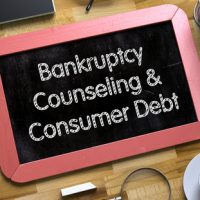Pros and Cons of Filing for Bankruptcy?

Filing for bankruptcy is a big step. But, for many people, it is a necessary one that finally gives them the power to move on with their lives. Crippling debts reduce a person’s options, including the types of jobs they can take and where they can live. By finally ridding yourself of debt, you might find your horizons broadening.
At Nowack & Olson, our lawyers represent individuals and small business in bankruptcy proceedings. We can handle all the paperwork to get your qualifying debts discharged. But before we do anything, we want potential clients to consider the pros and cons of filing for bankruptcy protection.
Pro: Release from the Stress of Debt
Receiving calls or letters from debt collectors is stressful. Trying to balance buying food or medicine with paying credit card debt can put a rock in someone’s stomach.
Fortunately, it does not have to be like this. Many debts are dischargeable in bankruptcy, including medical debt, credit cards, and personal loans. With these debts out of the way, many people can use their income to cover other expenses, including their mortgage, car loan, and/or student loans. If you don’t file, odds are high you will only go deeper into debt, adding to the stress.
Con: Impaired Credit
Bankruptcy will show up on your credit report for years—10 years for a chapter 7 and 7 years for a Chapter 13. Consequently, it can be harder (but not impossible) to get a loan. Even if offered a loan, the terms will be less favorable than if you had no bankruptcy.
A bankruptcy filing will also show up in a credit report that an employer or landlord might use. Be prepared to discuss the reasons you had to file and show any landlord or employer that your financial situation has improved.
Pro: More Money in the Bank
When people delay bankruptcy, they end up paying the minimum on high-interest debts, sometimes for years. All this does is delay the day of reckoning and leave a person poorer when they finally do decide to file for bankruptcy.
By filing now, many of our clients regain their financial footing. This sets them up well for the coming years, when the negative impact of the bankruptcy loses its sting.
Con: Losing Property
If you file a Chapter 7, then the trustee could sell property that is not exempt. Florida has some generous exemptions, which is something to keep in mind. For example, you can typically exempt the full value of your home if you have lived in the state for at least a few years.
If you have few assets, then there is little to lose in a Chapter 7. Those with more substantial assets might file for a Chapter 13, which does not require giving up any property.
Continue the Discussion by Contacting Us
Our Plantation bankruptcy lawyers at Nowack & Olson, PLLC will help you consider all your options to decide whether filing for bankruptcy protection is right for you. Call 888-813-4737 to schedule a free initial consultation.
Resource:
cnbc.com/select/how-long-do-bankruptcies-stay-on-credit-report/
https://www.floridabankruptcynow.com/can-you-get-a-car-loan-after-bankruptcy/
